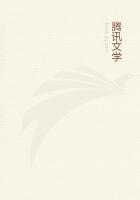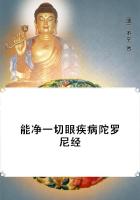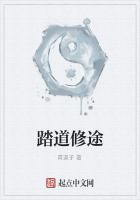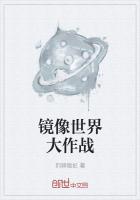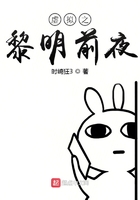Ho there! sweetheart," cried Mau-cinge to La Pasquerette, "put the tables straight, wipe up your blood, it belongs to me, and I'll pay you for it by giving you a hundred times as much of mine as I have taken of thine. Make the best of it, shake the black dog, off your back, adjust your petticoats, laugh, I wish it, look to the stew, and let us recommence our evening prayer where we left it off. Tomorrow I'll make thee braver than a queen. This is my cousin whom I wish to entertain, even when to do so it were necessary to turn the house out of windows. We shall get back everything tomorrow in the cellars.
Come, fall to!"
Thus, and in less time than it takes a priest to say his Dominus vobiscum, the whole rookery passed from tears to laughter as it had previously from laughter to tears. It is only in these houses of ill-fame that love is made with the blow of a dagger, and where tempests of joy rage between four walls. But these are things ladies of the high-neck dress do not understand.
The said captain Cochegrue was gay as a hundred schoolboys at the breaking up of class, and made his good cousin drink deeply, who spilled everything country fashion, and pretended to be drunk, spluttering out a hundred stupidities, as, that "tomorrow he would buy Paris, would lend a hundred thousand crowns to the king, that he would be able to roll in gold;" in fact, talked so much nonsense that the captain, fearing some compromising avowal and thinking his brain quite muddled enough, led him outside with the good intention, instead of sharing with him, of ripping Chiquon open to see if he had not a sponge in his stomach, because he had just soaked in a big quart of the good wine of Suresne. They went along, disputing about a thousand theological subjects which got very much mixed up, and finished by rolling quietly up against the garden where were the crowns of the Lombard. Then Cochegrue, ****** a ladder of Chiquon's broad shoulders, jumped on to the pear-tree like a man expert in attacks upon towns, but Versoris, who was watching him, made a blow at his neck, and repeated it so vigorously that with three blows fell the upper portion of the said Cochegrue, but not until he had heard the clear voice of the shepherd, who cried to him, "Pick up your head, my friend."
Thereupon the generous Chiquon, in whom virtue received its recompense, thought it would be wise to return to the house of the good canon, whose heritage was by the grace of God considerably simplified. Thus he gained the Rue St. Pierre-Aux-Boeufs with all speed, and soon slept like a new-born baby, no longer knowing the meaning of the word "cousin-german." Now, on the morrow he rose according to the habit of shepherds, with the sun, and came into his uncle's room to inquire if he spat white, if he coughed, if he had slept well; but the old servant told him that the canon, hearing the bells of St Maurice, the first patron of Notre Dame, ring for matins, he had gone out of reverence to the cathedral, where all the Chapter were to breakfast with the Bishop of Paris; upon which Chiquon replied: "Is his reverence the canon out of his senses thus to disport himself, to catch a cold, to get rheumatism? Does he wish to die? I'll light a big fire to warm him when he returns;" and the good shepherd ran into the room where the canon generally sat, and to his great astonishment beheld him seated in his chair.
"Ah, ah! What did she mean, that fool of a Bruyette? I knew you were too well advised to be shivering at this hour in your stall."
The canon said not a word. The shepherd who was like all thinkers, a man of hidden sense, was quite aware that sometimes old men have strange crotchets, converse with the essence of occult things, and mumble to themselves discourses concerning matters not under consideration; so that, from reverence and great respect for the secret meditations of the canon, he went and sat down at a distance, and waited the termination of these dreams; noticing, silently the length of the good man's nails, which looked like cobbler's awls, and looking attentively at the feet of his uncle, he was astonished to see the flesh of his legs so crimson, that it reddened his breeches and seemed all on fire through his hose.
He is dead, thought Chiquon. At this moment the door of the room opened, and he still saw the canon, who, his nose frozen, came back from church.
"Ho, ho!" said Chiquon, "my dear Uncle, are you out of your senses?
Kindly take notice that you ought not to be at the door, because you are already seated in your chair in the chimney corner, and that it is impossible for there to be two canons like you in the world."
"Ah! Chiquon, there was a time when I could have wished to be in two places at once, but such is not the fate of a man, he would be too happy. Are you getting dim-sighted? I am alone here."
Then Chiquon turned his head towards the chair, and found it empty; and much astonished, as you will easily believe, he approached it, and found on the seat a little pat of cinders, from which ascended a strong odour of sulphur.
"Ah!" said he merrily, "I perceive that the devil has behaved well towards me--I will pray God for him."
And thereupon he related *****ly to the canon how the devil had amused himself by playing at providence, and had loyally aided him to get rid of his wicked cousins, the which the canon admired much, and thought very good, seeing that he had plenty of good sense left, and often had observed things which were to the devil's advantage. So the good old priest remarked that 'as much good was always met with in evil as evil in good, and that therefore one should not trouble too much after the other world, the which was a grave heresy, which many councils have put right'.
And this was how the Chiquons became rich, and were able in these times, by the fortunes of their ancestors, to help to build the bridge of St. Michael, where the devil cuts a very good figure under the angel, in memory of this adventure now consigned to these veracious histories.


